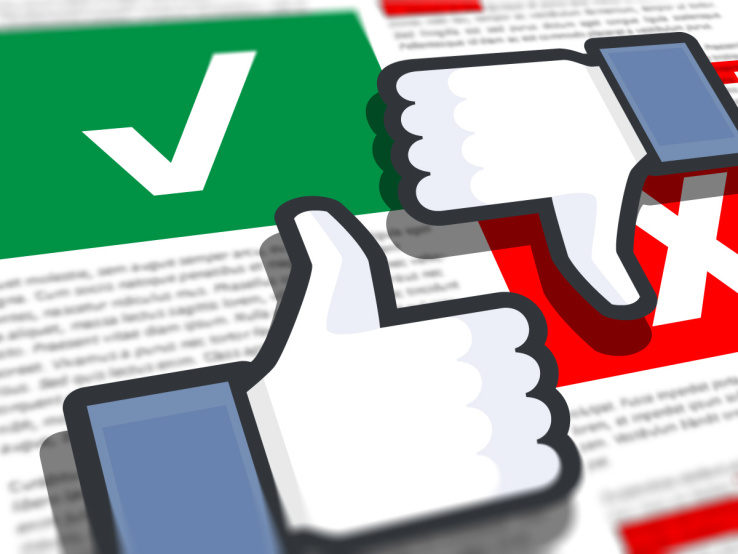The law is a bad one: it criminalizes certain speech, which is already problematic. The problems go much deeper than that, though. Instead of targeting German citizens who post illegal speech, the government targets American social media platforms, demanding the removal of illegal posts in less than 24 hours on the pain of up to €50m fines. On top of that, employees of service providers tasked with removals can also be fined €5m personally for not reacting fast enough to government demands.
So, it's bad. And determining what is or isn't illegal is in the eyes of government beholders. Faced with the prospect of expensive fines, Twitter, Facebook, etc. are probably not going to be second-guessing many government requests for content deletion. Worse, it's going to encourage service providers to be proactive, amplifying the underlying vagueness of the German "hate speech" law. False positives are a given. We just didn't expect the collateral damage to occur so quickly.
A German satirical magazine's Twitter account was blocked after it parodied anti-Muslim comments, the publication said on Wednesday, in what the national journalists association said showed the downside of a new law against online hate speech.This was exactly what journalists (and satirists) were warning against as the hate speech law was being pushed through the legislature: collateral damage. Not only could the law potentially do harm to journalism, it was perfectly capable of damaging other forms of speech, like satire.
Titanic magazine was mocking Beatrix von Storch, a member of the right-wing Alternative for Germany (AfD) party, who accused police of trying "to appease the barbaric, Muslim, rapist hordes of men" by putting out a tweet in Arabic.
Twitter briefly suspended her account and prosecutors are examining if her comments amount to incitement to hatred.
Titanic magazine published its send-up late on Tuesday, in a tweet purporting to be from von Storch to the police, saying: "The last thing that I want is mollified barbarian, Muslim, gang-raping hordes of men."
The magazine's writers are shocked at this turn of events. They likely didn't expect an American social media company to be making judgment calls on speech ahead of German censors. Prosecutors are "examining" the politician's comments for possible illegality, but no one seems too eager to explain why Twitter nuked a satirical account as well. The Titanic's publishers say Chancellor Merkel herself promised writers the law wouldn't have this effect. But here we are, observing this exact effect in motion -- one completely expected by everyone asking their representatives for a better, more narrowly-crafted law.
Laws regulating speech need light touches and deft craftsmanship. They rarely, if ever, get them. Germany's new speech law didn't even make it a week before it started taking out innocent bystanders. And the law's just getting started.




After all, she was born in East Germany (DDR).
Old habits die hard.
And THESE are the people that point accusing fingers at Adolf Hitler?
It would be amusing if it was not so tragic.